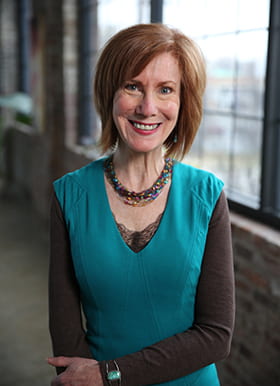
Margaret Clancy
CSD Policy Director,
Director of College Savings Initiative and SEED for Oklahoma Kids
- Email: mclancy@nospam.wustl.edu
MARGARET M. CLANCY, MSW, is the Policy Director and College Savings Initiative Director at the Center for Social Development (CSD) at the Brown School at Washington University in St. Louis. Clancy is responsible for design and leadership of large-scale policy demonstrations, including SEED for Oklahoma Kids (SEED OK), a rigorous test of Child Development Accounts (CDAs) and one of the longest-running social experiments in the country. She is a primary architect of the policy structure tested in the SEED OK experiment, results of which have informed CDA policy in U.S. states, cities and in several other countries. As a direct result of the work that she has led for more than two decades, millions of children in the United States have a CDA for postsecondary education.
In recognition of Clancy’s contributions to CDA research and policy, the Brown School honored her with the Distinguished Alumni Award in 2023 and the Outstanding Research Staff Award in 2011.
Since 2001, Clancy has researched features of 529 college savings plans as a model for inclusive asset-based policy, and she is an expert on progressive 529 policies in the states. She provides testimony to state legislatures and consultation to federal, state, and local policy makers, and nonprofit organizations throughout the country. Prior to joining CSD, Clancy administered corporate 401(k) and defined benefit pension plans, working as a Vice President of a large trust company. Clancy earned a BS in Business Administration from Southern Illinois University Edwardsville and an MSW at Washington University in St. Louis.
Projects

SEED for Oklahoma Kids (SEED OK)
Asset Building
The SEED OK experiment, which began in 2007, is a large-scale policy test of universal, automatic, and progressive Child Development Accounts. The CDA uses the Oklahoma 529 College Savings Plan platform.

College Success: Increasing Access through Inclusion in 529 Plans
Asset Building
CSD seeks to inform and put in place an inclusive 529 platform for educational savings to increase postsecondary degree success among lower-income children, youth, and non-traditional students.

Inclusion in 529 Savings Plans: Evidence from Maine
Asset Building
The first statewide Child Development Account (CDA) in the U.S., Maine’s Harold Alfond College Challenge, stands as a shining example of universal and progressive accounts at birth. We study the College Challenge and document this CDA’s evolution.

SEED National Initiative
Asset Building
We test asset-building accounts for children and youth to create an inclusive system of Child Development Accounts in 12 communities across the U.S. SEED included more than 1,200 low-income children and their families.

Israel: Asset Building Policy and Child Development Accounts
Global Asset Building
We work with the Israeli government to develop an asset-building policy of national Child Development Accounts.

American Dream Policy Demonstration (ADD)
Asset Building
This is the first large-scale demonstration of Individual Development Accounts, with approximately 2,400 accounts opened at 13 sites across the country.

Family Assets for Independence in Minnesota
Asset Building
In 1998, the Minnesota Legislature passed into law the Family Assets for Independence in Minnesota (FAIM) Pilot Project for IDAs. FAIM was the first statewide IDA program to be studied in this level of detail.

The United Way of Greater St. Louis Individual Development Account Pilot Program
Asset Building
Our project with the United Way of Greater St. Louis implemented an IDA Pilot Program to explore a way to build assets in low-income households and communities.